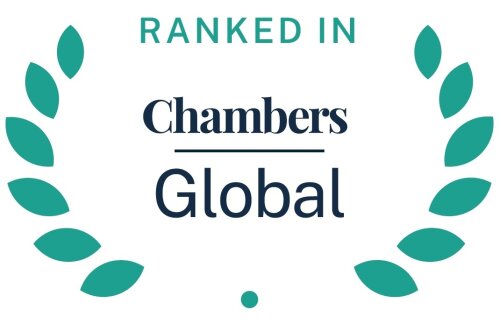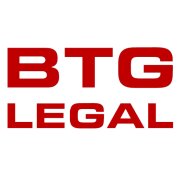Best Biotechnology Lawyers in Milan
Share your needs with us, get contacted by law firms.
Free. Takes 2 min.
List of the best lawyers in Milan, Italy
About Biotechnology Law in Milan, Italy
Biotechnology law in Milan, Italy, encompasses a diverse range of issues, from intellectual property protection and regulatory compliance to ethical considerations and investment. Milan, as a prominent European hub for biotech research and development, hosts many startups, research institutions, and multinational corporations. Biotechnology law in this region is influenced by both national legislation and European Union directives, making it a complex field that interfaces with various areas of law, including patent law, corporate law, environmental law, and healthcare regulation.
Why You May Need a Lawyer
Legal advice is often crucial in the field of biotechnology for various reasons. Companies and researchers may need to protect their intellectual property rights through patents or to navigate the complexities of licensing agreements. Compliance with local and EU regulatory frameworks is vital for product development and market authorization, especially in areas like pharmaceuticals, food safety, and environmental protection. In cases of mergers, acquisitions, or investment in biotech ventures, legal assistance can ensure that all procedures are followed correctly. Moreover, litigation might arise in scenarios such as alleged patent infringement, disputes over licensing agreements, or regulatory non-compliance.
Local Laws Overview
In Milan, the biotechnology sector is governed by Italian law, supplemented by EU directives and regulations. Key aspects include the Intellectual Property Code, which provides the framework for patents and protection of biotechnological inventions. Biotech companies must also comply with the stringent regulations of the European Medicines Agency (EMA) for drug approval, and the European Food Safety Authority (EFSA) for food and feed. Privacy laws, particularly concerning genetic information and data protection, are articulated in the General Data Protection Regulation (GDPR). Additionally, environmental laws regarding GMOs, biosafety, and waste management are important for biotech operations.
Frequently Asked Questions
Can I patent a biotechnological invention in Milan?
Yes, biotechnological inventions can be patented in Italy as long as they meet the criteria of novelty, inventive step, and industrial applicability. Italy transposes the EU Biotech Directive, which provides specific provisions for biotechnological patents.
Are there specific regulations for biotech startups in Milan?
While there are no unique regulations for biotech startups, they must abide by the general Italian corporate, labor, and tax laws, in addition to the specific biotech regulations concerning their field of activity.
What should I do to ensure my biotech company complies with European regulations?
It's recommended to work with a lawyer who specializes in EU biotech regulation to conduct a compliance audit and establish internal policies that align with current legislation, including EMA and EFSA guidelines.
How do I navigate technology transfer and licensing agreements?
Legal counsel should be sought to draft, review, and negotiate technology transfer and licensing agreements to safeguard your rights and interests, ensuring that the terms are clear and enforceable.
What legal issues surround GMOs in Milan?
GMOs are subject to strict regulation in Italy and the EU, including risk assessments, labeling, and traceability requirements. Legal advice is crucial to navigate the complex framework surrounding the use of GMOs.
How does GDPR impact biotech companies involved with genetic data?
GDPR places stringent requirements on the processing of genetic data, including consent, data protection impact assessments, and the appointment of a Data Protection Officer (DPO) in certain cases.
What are the legal considerations for clinical trials in biotech?
Legal counsel is important to ensure compliance with regulatory requirements for clinical trials, including participant consent, ethical approvals, and data protection.
What is the role of a lawyer in biotech mergers and acquisitions?
Lawyers help with due diligence, negotiation, drafting agreements, and ensuring that the transaction complies with applicable laws and does not raise any antitrust concerns.
Are there any tax incentives for biotech companies in Italy?
Italy offers tax incentives to companies engaging in R&D activities, including tax credits. It's important to consult with a legal and tax advisor to take full advantage of these incentives.
What to do in case of biotech intellectual property infringement?
Contact a lawyer immediately if you suspect infringement of your biotech intellectual property rights. They will evaluate the situation and guide you through the enforcement or litigation process.
Additional Resources
For those seeking legal advice in biotechnology, the Italian Institute of Technology (IIT) and Assobiotec, the Italian Association for the development of biotechnology, are valuable resources. The Italian Patent and Trademark Office (UIBM) provides guidance on intellectual property issues. Additionally, the Milan Chamber of Commerce offers support and resources for local businesses, including those in the biotech sector.
Next Steps
If you need legal assistance in biotechnology, consider reaching out to law firms in Milan that specialize in this area. It is advisable to arrange for an initial consultation to discuss your situation in detail and plan the appropriate course of action specific to your needs in the biotech realm.
Lawzana helps you find the best lawyers and law firms in Milan through a curated and pre-screened list of qualified legal professionals. Our platform offers rankings and detailed profiles of attorneys and law firms, allowing you to compare based on practice areas, including Biotechnology, experience, and client feedback.
Each profile includes a description of the firm's areas of practice, client reviews, team members and partners, year of establishment, spoken languages, office locations, contact information, social media presence, and any published articles or resources. Most firms on our platform speak English and are experienced in both local and international legal matters.
Get a quote from top-rated law firms in Milan, Italy — quickly, securely, and without unnecessary hassle.
Disclaimer:
The information provided on this page is for general informational purposes only and does not constitute legal advice. While we strive to ensure the accuracy and relevance of the content, legal information may change over time, and interpretations of the law can vary. You should always consult with a qualified legal professional for advice specific to your situation.
We disclaim all liability for actions taken or not taken based on the content of this page. If you believe any information is incorrect or outdated, please contact us, and we will review and update it where appropriate.













